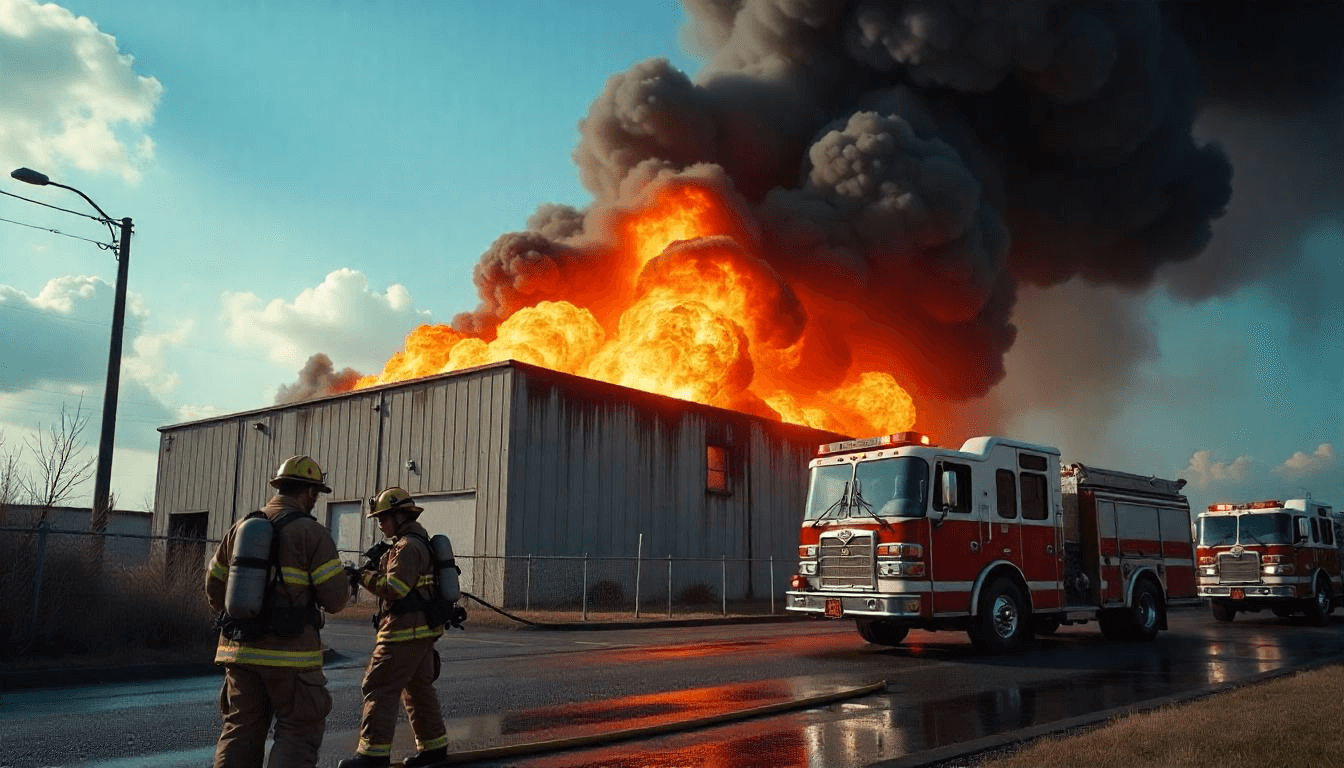The unexpected explosion and subsequent fire at the PharmaCann facility in Stevensville, Maryland, has captured significant attention. Let’s delve into what happened and the implications for workplace safety in similar industrial settings.
The Incident Overview
On a day that began like any other, two workers at the PharmaCann facility experienced an explosion followed by a fire. The event injured these employees and led to the evacuation of nearby properties. It was quickly determined that sprinklers played a vital role in containing damage.
According to the Office of the State Fire Marshal, the damages were mitigated thanks to functioning emergency response systems, including alarms and ventilation. However, one employee sustained severe injuries; fortunately, these were not life-threatening.
Immediate Response
Emergency services swiftly arrived on the scene. The Kent Island Volunteer Fire Department reported via Facebook that the explosion occurred while staff were conducting extraction procedures. The crew’s prompt arrival ensured that the exterior showed no evident damage, though the interior suffered severely.
Shore News Beacon updated their readers that despite the external calm, the internal structure had taken a hit from the intense explosion and fire. The state Fire Marshal’s office estimates that damages could surpass $250,000, although the precise figure remains undetermined.
Emergency Systems in Action
This incident is a case study of how well-designed emergency response systems can minimize damage and protect lives. The activation of fire sprinklers, along with adequate ventilation and robust alarm systems, collectively minimized harm during this tragedy.
Investigators praised these systems, emphasizing that their proper function was crucial in preventing further injury and structural loss. The features designed to respond to emergencies demonstrated their value amid the chaos.
Importance of Preparedness
The preparedness of the emergency response systems underlines why maintaining such protocols is essential. Employees must be trained regularly, and systems should undergo frequent checks to ensure they are in top running condition.
Furthermore, companies should assess their vulnerability and take proactive measures. Regular drills and equipment upgrades can go a long way in ensuring safety when real emergencies occur.
Wider Implications for Industrial Safety
The PharmaCann incident underscores the need for rigorous safety standards in potentially hazardous industries, especially those involving chemicals or combustible materials. One key takeaway is the importance of having a robust Employee Emergency Action Plan (EEAP).
Companies across various sectors should evaluate their current safety practices. Learning from such incidents can help improve existing policies and implement more efficient risk management strategies.
Employee Training and Awareness
Proper training is non-negotiable. Employees should be well-versed in emergency procedures and understand the logistics behind emergency machinery and protocols. This knowledge can often differentiate between a controlled situation and a disastrous outcome.
Regular training sessions, simulations, and updates on new safety technologies can empower employees to act efficiently during crises. Moreover, open communication channels enhance alertness, making sure everyone stays informed about potential risks and hazard responses.
Economic Impact on Businesses
Beyond immediate health and safety concerns, incidents like the PharmaCann explosion have financial repercussions. Significant monetary losses stem from physical damage, operational shutdowns, and reputational harm.
Insurance claims might cover some costs, but businesses often face periphery losses that aren’t immediately quantifiable. Therefore, investing in prevention proves to be far less costly than dealing with consequences after an incident.
Cost-Benefit Analysis of Safety Investments
A cost-benefit analysis reveals that the price of implementing top-tier safety measures pales in comparison to the potential aftermath of inadequate protection. Companies should view these expenses as investments rather than optional expenditures.
Create a detailed budget allocation towards safety improvements and ensure continuous monitoring of these investments to verify their effectiveness. Periodic audits can further identify areas needing enhancement, thus staying ahead of potential hazards.
Community and Environmental Concerns
Incidents involving explosions and fires don’t just affect the immediate business; they also impact the surrounding community and environment. The evacuations during the PharmaCann incident highlight the ripple effect such events can create.
Environmental contamination from chemical spills or smoke can pose long-term risks. Immediate containment efforts must be complemented by ongoing environmental assessments to ensure community safety.
Building Community Trust
Transparency and quick action following an incident help maintain or rebuild trust with the local community. Informing residents about the steps being taken to address the issue can assuage fears and demonstrate responsibility.
Affected businesses should engage in meaningful dialogue with community leaders and residents to discuss concerns and outline future preventive measures. Collaborative efforts ensure a cooperative approach to dealing with residual effects.





